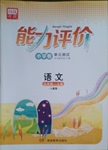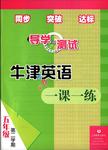题目内容
I get on well with him nowadays. Better than I ________.
- A.used
- B.am used to
- C.used to
- D.was used to
C

练习册系列答案
 能力评价系列答案
能力评价系列答案 唐印文化课时测评系列答案
唐印文化课时测评系列答案 导学与测试系列答案
导学与测试系列答案
相关题目
根据对话内容,从对话后的选项中选出能填入空白处的最佳选项。并在答题卡上将该项涂黑。选项中有两项为多余选项。
W: Hi, John.
M: Hi. Lucy. 61
W: Yes. I'm required to tell a story in English before the lesson begins.
M: Oh, I see. 62
W: You're right. I need to practice on the stage before they all come.
M: 63
W: Yes, here, in my pocket...Oops, where is it?
M: Don't worry, 64
W: ...No, not in the bag either. I'm afraid I left it at home.
M: 65
W: Aha! It's just the key to the classroom! Thank you so much.
|
A.Glad to see you. |
|
B.What's the story about? |
|
C.What's that around your neck? |
|
D.Maybe you put it in your schoolbag, |
E. Do you have the key to the classroom?
F. You're going to school rather early today.
G. So you want to get to the classroom earlier to make some preparations?